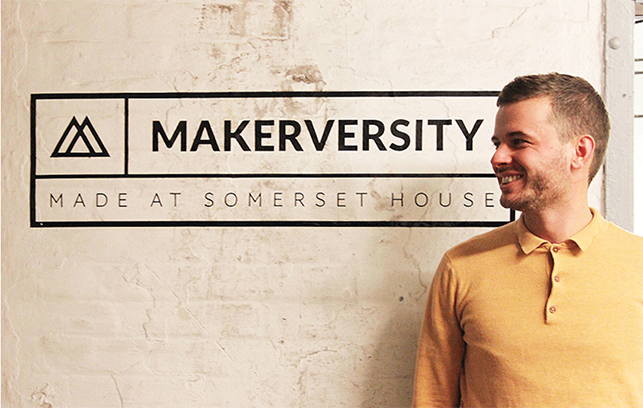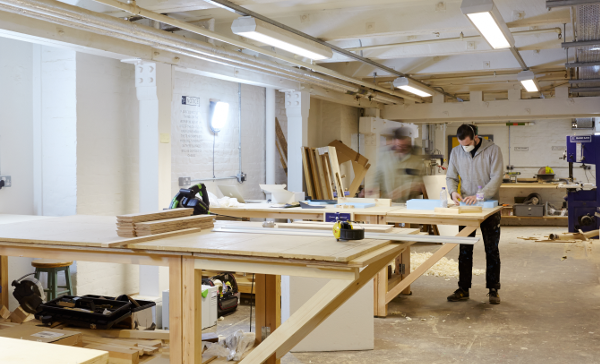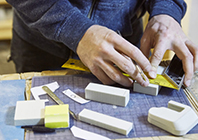
Makerversity offers its members — essentially anyone who is in the business of making for a living — studio or desktop space as well as access to digital and traditional machinery and tools.
First established in Somerset House, London, in 2014 and then in Marineterrein, Amsterdam, we talk to one of its co-founders Tom Tobia
The obvious first question is why did you set up Makerversity in the first place?
Our vision was threefold:
• To provide affordable space for the most exciting maker businesses
• To offer learning opportunities to young people in emerging industries – access to careers they wouldn’t know about through school
• To bring making and manufacturing back to the heart of the city
Why did you choose Somerset House as the location?
Because we took an opportunity to develop a derelict space in an incredible location – one that isn’t tied to the trends of East or West London. Somerset House has a neutrality to it and a gravitas that elevates the professions and people we support.
What partners did you get onboard to enable you to do this?
No one to start with – it was our own time and money. Pearson came on board as a learning partner quite early and that enabled us to bootstrap from there. Autodesk weren’t far behind.
What do members get for their money in terms of the space and tools you offer?
They get permanent desk or studio space, access to digital, wood, metal, textiles and electronics workshops, breakout spaces etc. It’s equally important they have access to each other as a community though. This is where our value truly lies – our community spirit and the fact Makerversity is owned and run by creative people means we have a different and more collaborative vibe to most co-working spaces.

What is expected from a Makerversity candidate?
A monthly membership fee is the cost – averaging £300 pcm. We look for diversity of industry, and you either need to be running a business or have an idea to run a business in some sort of emerging practice, and be making something tangible be that physical, digital, edible or even musical.
How do you go about selecting new tools and processes to bring into Makerversity?
With members largely we respond to what they need whenever we can. There are some core machines that always get used like laser cutters but beyond that we’re flexible. It’s not just facilities but also events, workshops and talks.
Tell us about those?We are a community of makers of all kinds – we’re as interested in hosting talks and workshops that bring people into our world as we are anything else. We do a lot with people like The Prince’s Trust in terms of workshops for young people to explore things like product design.
You seem quite passionate about young people and getting them making for instance with your MakerClub. Why do you dedicate so much resource to this?
Opportunities for learning about the jobs of tomorrow are either non existent or expensive. Every young person deserves to find out about how they can achieve their potential even if they don’t go to university. This in particular is interesting in the context of academic vs vocational routes. There are lots of incredible high value ‘nonacademic’ careers out there and we want to help people find them.
makerversity.org
We chat with London’s Makerversity co-founder Tom Tobia
Default






